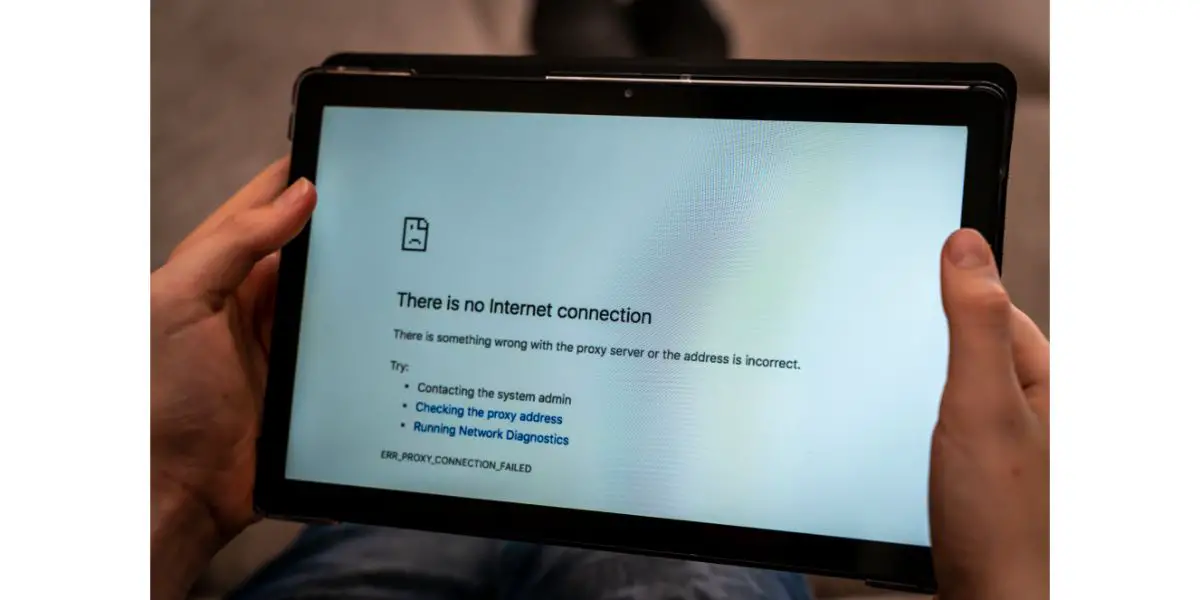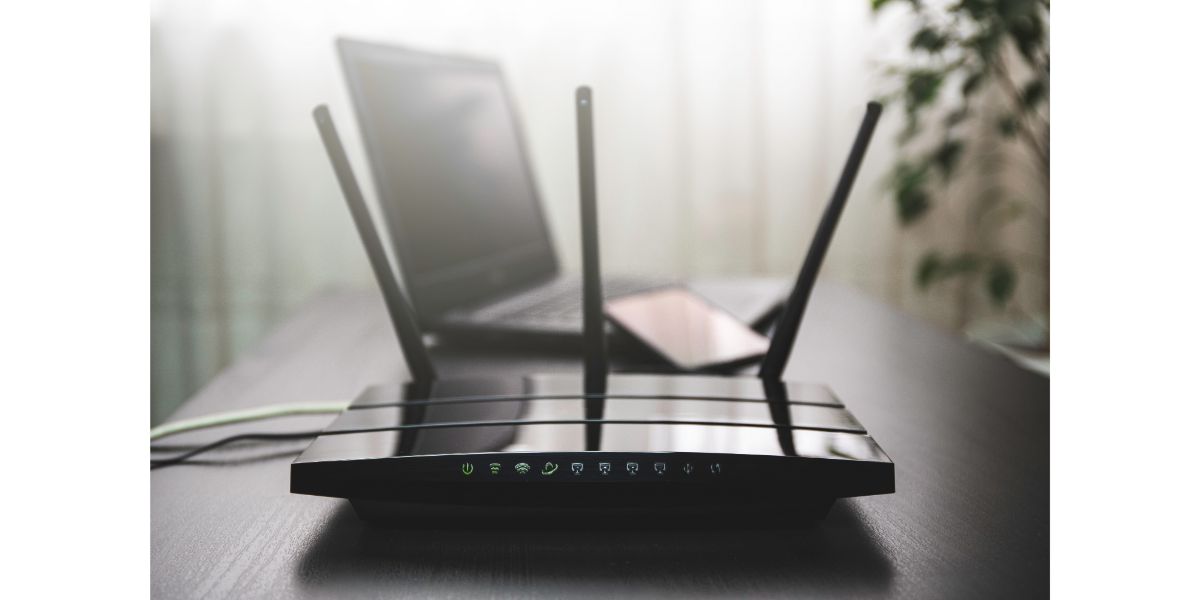Disclaimer: This post may contain affiliate links, meaning we get a small commission if you make a purchase through our links, at no cost to you. For more information, please visit our Disclaimer Page.
An internet outage can drive you crazy and ruin your whole day because it stops you from using all of your devices. No matter what internet service provider (ISP) you have, an outage can happen in the middle of the day or night. Get an idea of what causes these outages, what you can do when one happens, and how you can use the web.
Table of Contents
How Do Internet Outages Happen? (5 Common Causes)
Internet outages occur when there is a problem that blocks the network. You might find that you have no internet while the people across the street or down the block still do.
Once the outage begins, you cannot connect to the internet with any device. You won’t get a connection again until the outage is over. Internet outages usually happen for one of a few reasons.
1. Natural Disasters
Natural disasters include any acts by Mother Nature or God. When your area gets a lot of snow and ice, don’t be surprised if you have an internet outage. The ISP’s equipment used on the street can easily suffer damage as the snow falls and the ice builds up.
During hurricanes and rainstorms, ISPs often have outages that affect many of their customers who live in those areas. It can take days and even weeks until the company restores your internet.
2. Accidents
One of the biggest reasons for internet outages is accidents. Your ISP uses different types of equipment to keep every home connected. When anything happens to that equipment, you lose your connection. A good example is a city worker who accidentally cuts through your DSL or cable line when working on the street or sidewalk.
The ISP will need to come out and repair the line. Accidents can also happen when a car crashes into the ISP’s equipment or when you cut through the line working on your yard. It can take quite a while before your ISP can get someone out to fix the problem.
3. Cyber Attacks
Though rare, cyber attacks can cause internet outages. A cyber attack is when an individual or a group of people take down an ISP and its equipment. They usually target bigger companies like Spectrum and Comcast than smaller companies.
4. Congestion
Congestion is a problem that often affects public networks. Have you ever tried to go online at your favorite coffee shop or the library and found that the speed was so slow you could hardly do anything?
When too many people attempt to use the same network, the congestion can cause the network to fail because it can’t handle the traffic. The same thing can happen when too many devices share a network, too.
5. Device Failures
Before you blame your ISP, inspect your devices. You might have both a router and a modem that work together to spread the internet around your home. All it takes is one failed device to take out your entire network. For example, the power cord on your router might no longer work.
While you can still use your router and run an ethernet cord from it to use the internet on other devices, you cannot use Wi-Fi. On the other hand, the modem can fail and stop you from getting an internet signal. You also need to check the cable that connects the router and modem. If it fails, the router cannot pick up the signal from the modem.
How Long Do Internet Outages Usually Last?
The length of time an internet outage lasts depends on both its cause and your ISP. In most cases, it should only take an hour or two hours for your internet to return.
Some companies have techs who keep an eye on their equipment and notify them instantly of any problems, but others wait for customers to contact them about outages. Outages caused by natural disasters and serious accidents can last for two days to a week or longer.
What Do You Do When There’s an Internet Outage? (5 Potential Fixes)
As soon as you discover an internet outage, you need to check the equipment in your house and contact your ISP. Checking your equipment lets you know if you have a minor problem on your end or if you have an issue that affects other customers.
1. Start With Your Equipment
Always turn off both your router and modem before you do anything else. Go ahead and remove the power cords and any other cables. Unplug them both from the wall and wait at least 60 seconds. You can then plug the cables back in and plug the power cords into an outlet or surge protector.
Wait for the devices to reset, which can take a few minutes. Most have lights that change colors to let you know when they have power and a connection. You can also rest the modem and/or router to see if that works.
2. Look Outside
When you wake up in the morning and find your internet went out, take a look outside. The odds are good that an accident or weather condition caused the outage. You want to look for signs of flooding, which can cause water damage to the ISP equipment.
If someone had an accident, you might see a tow truck outside or signs of broken glass on the street. You’ll also want to look outside for any techs working on the problem. The ISP can have techs working on the connection before you even get out of bed.
3. Test Your Internet Speed
Several apps and websites offer free speed tests. If you have an internet connection but it’s slow, run one of these tests. You just need to open the test and press a button. The test will see how quickly your device can upload and download data.
It will tell you both speeds and let you know whether the speeds are good or bad. You may also want to run a speed test via your ethernet cord. This is an easy way to tell if the cord works. When the cord is too frayed or damaged to work right, it will slow down your speed.
4. Try Other Sites and Devices
Even the top websites can experience outages every now and then. These outages occur when the server sees too much traffic and shuts down or when a cyber attack occurs. When you open the internet, don’t assume it’s out just because you can’t load the first site you try.
Visit a few different sites to see if you have internet. You should also try other devices to see if the outage only affects one device. For example, your smart TV may not work because it reset itself in the middle of the night and lost the connection.
5. Contact Your ISP
Once you determine that you have no internet in your home, contact your ISP. The tech you talk to will likely ask when you noticed the outage and if you tried turning your modem on and off. They may also ask if you checked your connection on other devices.
If they already received notice of an outage, you might hear an automated message that lets you know they are working on a solution. Stay on the line and ask a customer service rep for compensation on your next bill. Let them know why and how the outage affected you. They should offer a credit on your account.
3 Ways to Get Internet During a Power Outage
Is there anything worse than not having internet at home? It’s especially a problem if you work from home because you cannot log in to your work server or talk with clients online. Though it may seem hard to believe, you have a few ways to get internet at home when the power goes out.
1. Use Your Phone as a Hotspot
Whether you have an iPhone or an Android, you can often use it as a mobile hotspot. Go to the Settings and then Connections to find the Mobile Hotspot and Tethering option. You may need to open the Settings and go to Network & Internet and then Hotspot & Tethering.
Check the name of the hotspot and its password. Make sure that you set it up to work with a password to keep your neighbors from using your Wi-Fi. Turn on the device you want to use and find the mobile hotspot in your connections. The device will ask for the password but then should connect you.
2. Invest in Backup Power
A backup power supply is a must-have in areas with frequent storms and bad weather. You can pick up a generator for around $150 to $200 that runs on gas or diesel. As long as you have enough fuel, it will provide you with a steady stream of power. You’ll need a bigger one to power your appliances, but a smaller model works fine for your phone and computer.
Generators usually have a few outlets of different voltages on the front that works with your home’s devices and appliances. You can even plug in a surge protector or extension cord to use the generator with multiple devices. The generator can power your router and modem, too.
You don’t need to spend a lot of money on a big generator though because backup power supplies come in smaller sizes. With a jump box, you have enough power to jump-start your car and run one or two devices for a few hours. The box comes with a charger that fits in any wall outlet. Solar power packs and power banks are just as handy to keep around for an emergency.
3. Have a Backup Hotspot Ready
A backup hotspot comes in handy when the power goes out, especially if you live in a region that gets a lot of bad weather. Many phone companies let you add a data plan to your monthly bill for $15 to $20 a month.
The device gives you a set amount of data based on your plan, but you usually get around 15 GB. While this isn’t enough data to watch multiple movies on Netflix or play several online games, it lets you stay connected and get online until the power returns.
Conclusion
Internet outages are common and can last from a few short hours to several days or longer. Not only do you face outages that affect just your internet, but you’ll find outages that knock out both the power and the internet. Stay prepared and know what to do when an outage happens and how you can use the internet.


